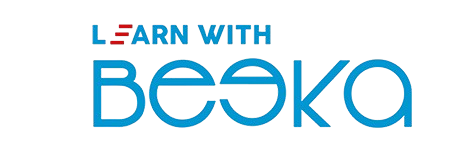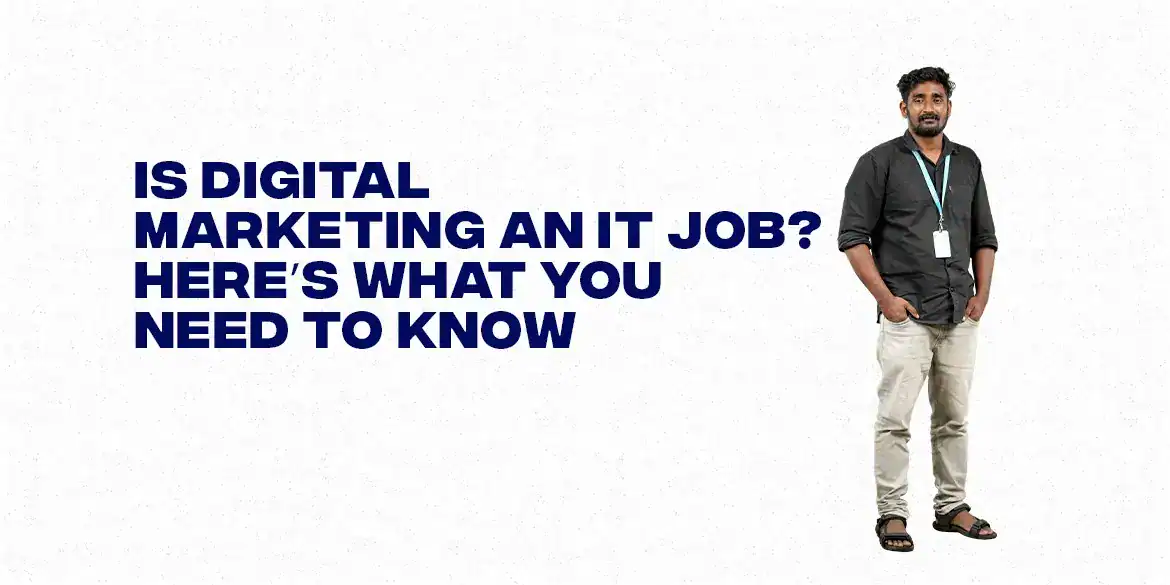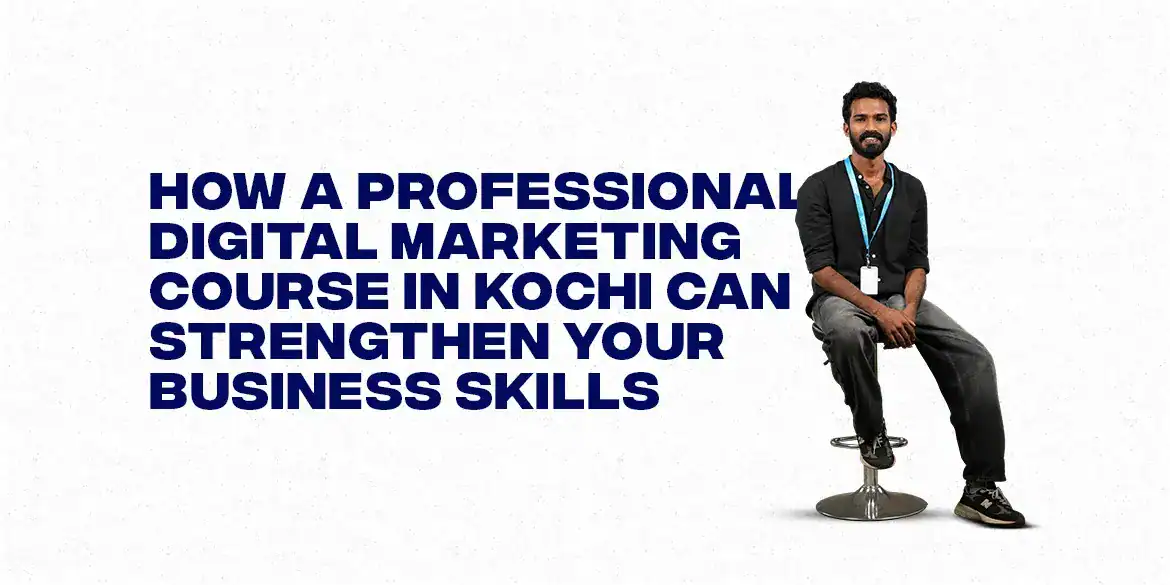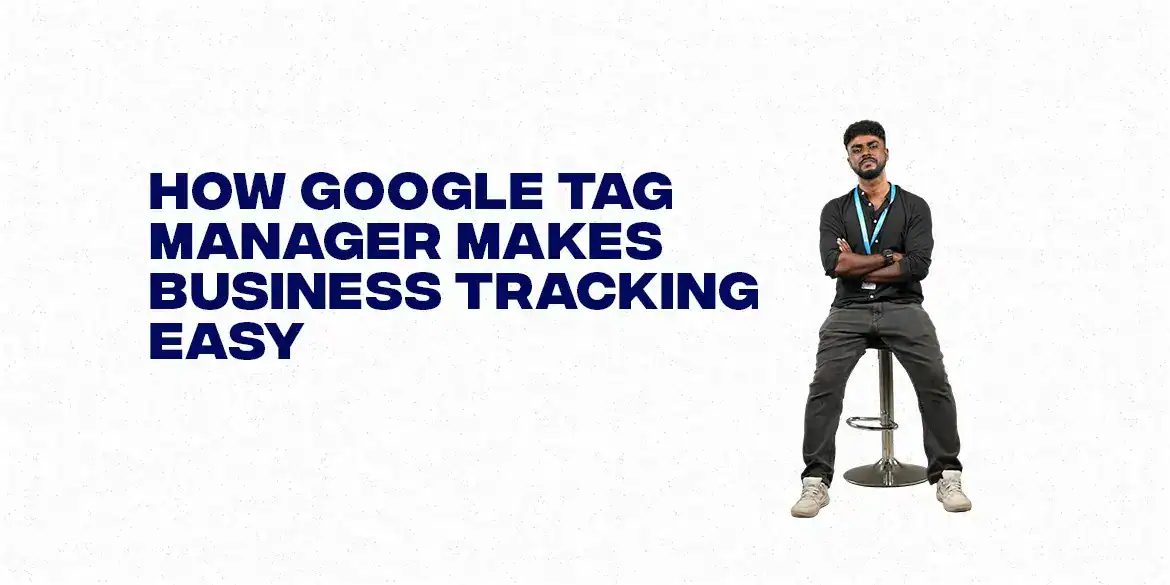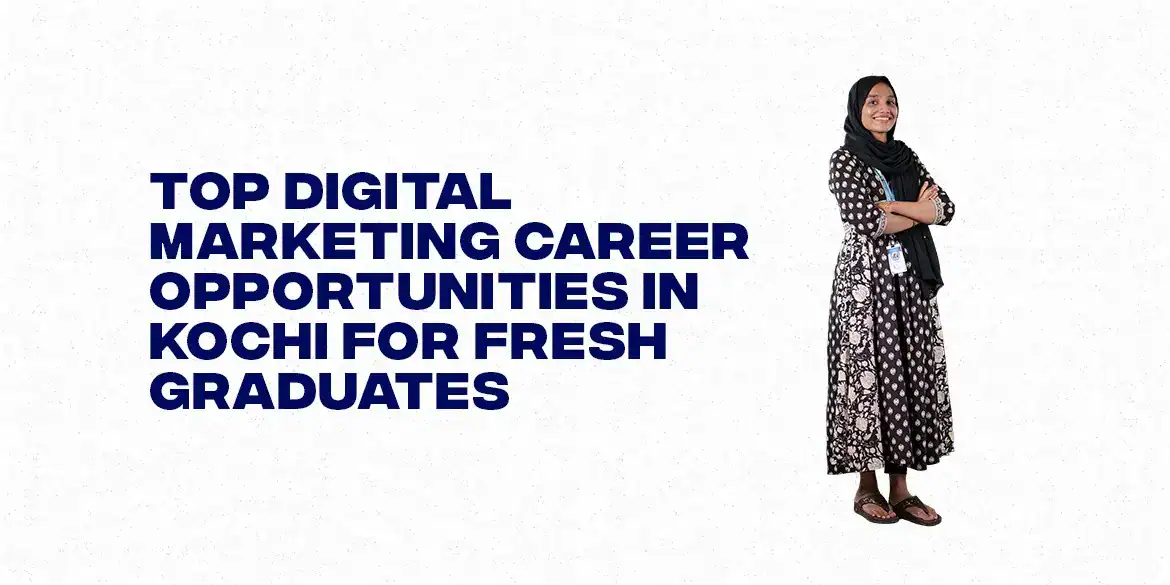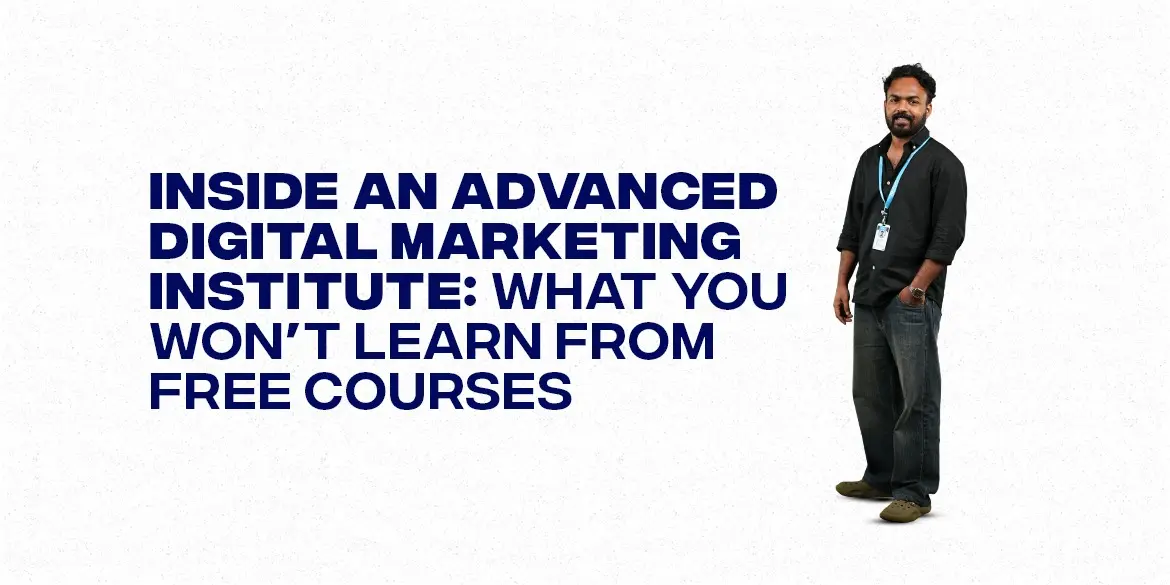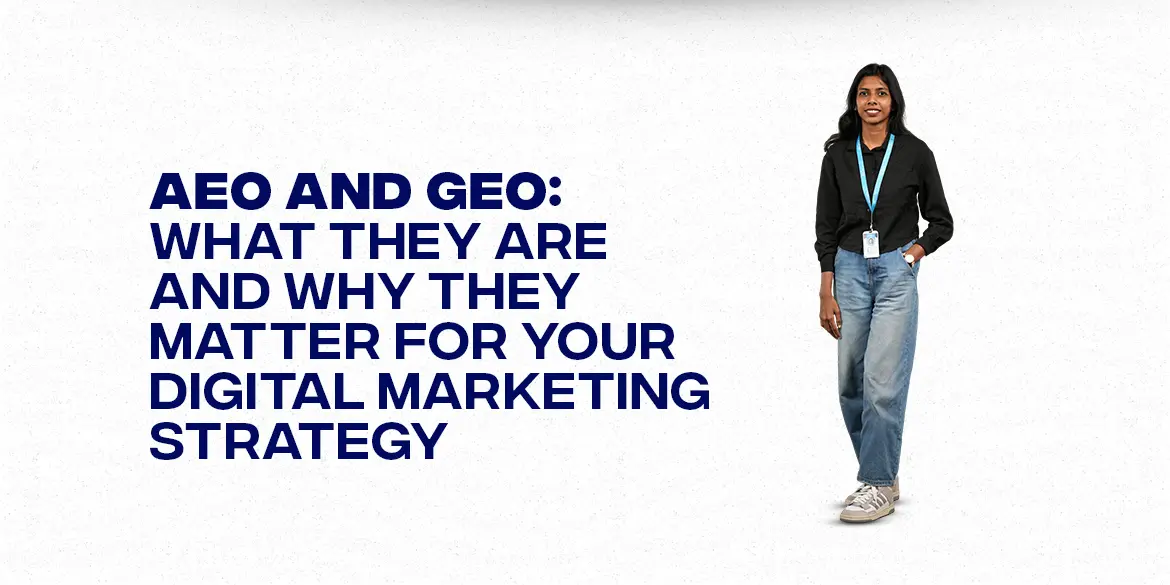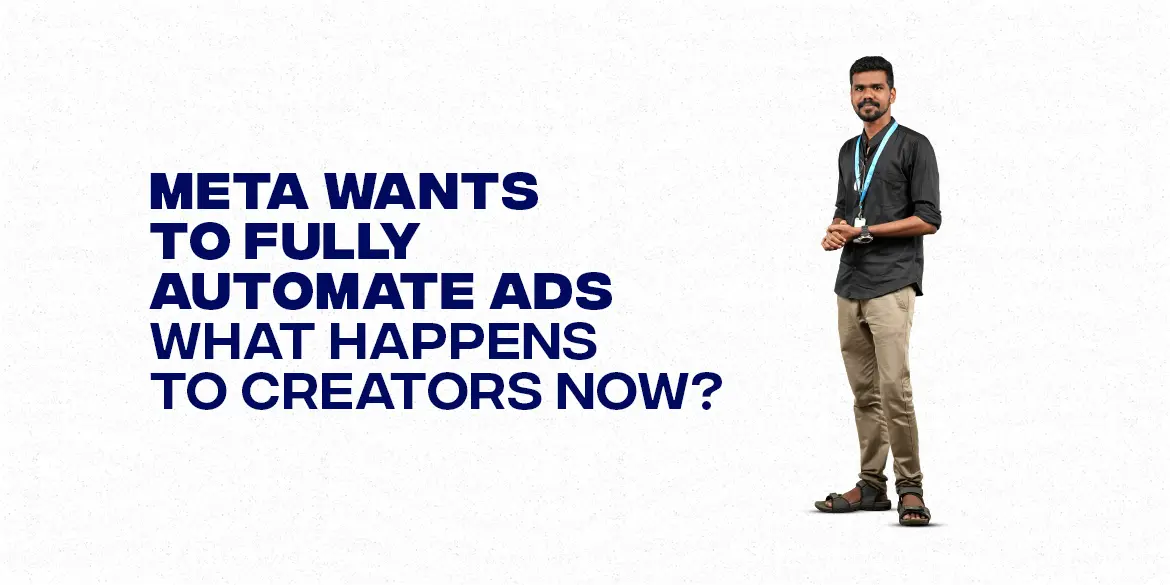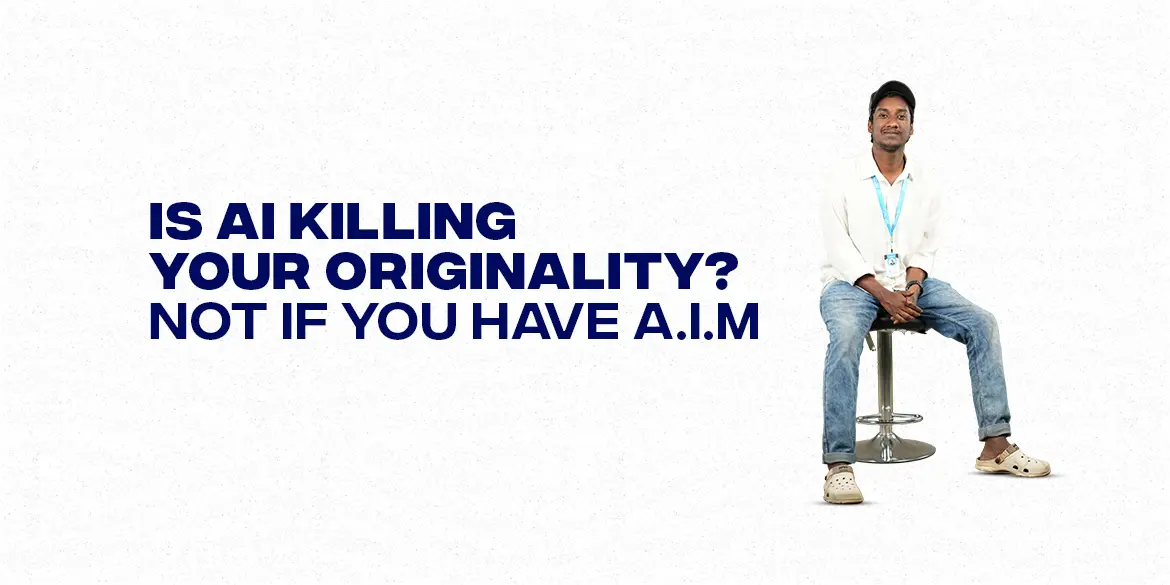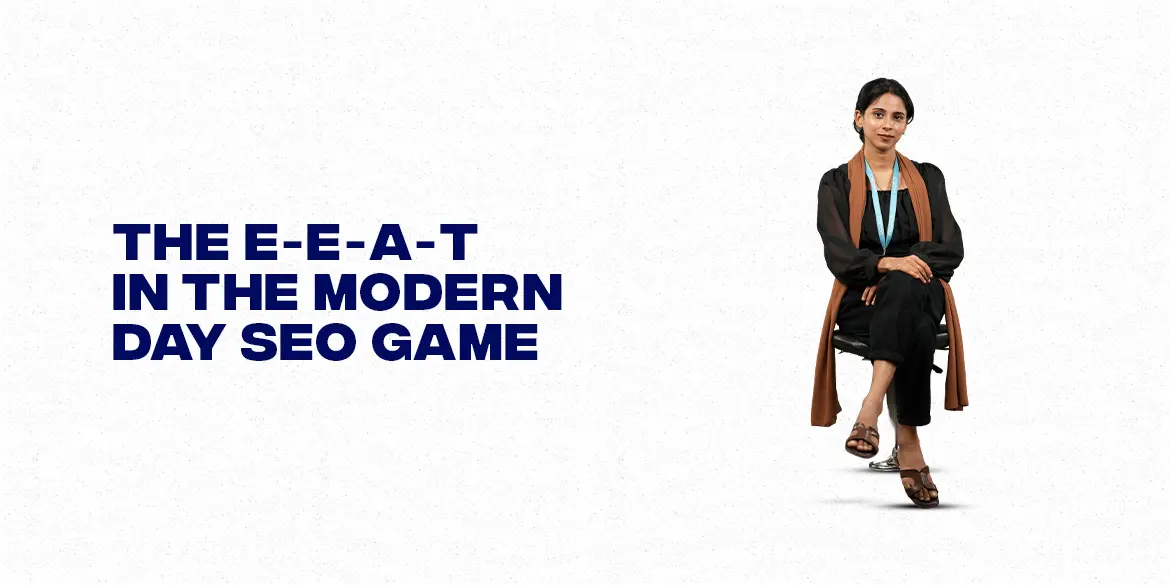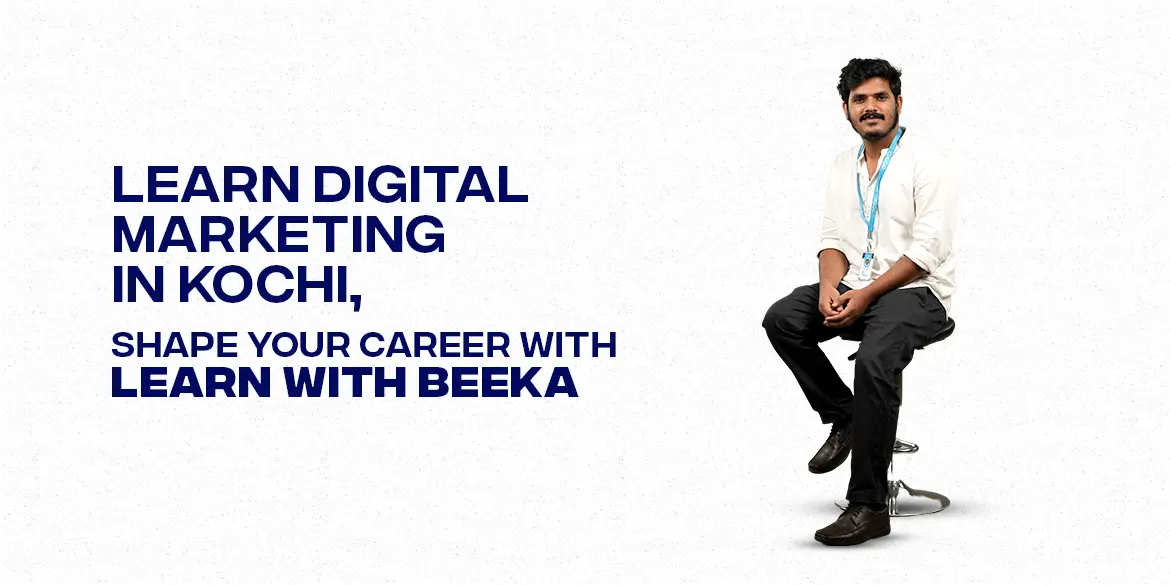Every business wants to be seen, heard, and remembered in a digital-first world today. And at the heart of this visibility revolution is digital marketing — an exploding field that creatively combines technology, data, and creativity. But here is the big question that many students (and professionals) still ask: Is digital marketing an IT job? The short answer is no, not exactly, but yes, there is a strong relationship with the IT profession. The following will break down everything in detail to show you where digital marketing fits into the big picture, the skills required for the job, and how you can craft your digital marketing career path to be successful and rewarding if you decide this field is right for you. 1. Comprehending the Essentials of Digital Marketing Digital marketing is developing your products or services digitally through channels like search engines, social media platforms, email, website, and mobile applications—basically anywhere a consumer would find you online. Digital Marketing has to do with targeting where your audiences are online, understanding their behavior, and developing a sustainable strategy to convert online visitors to customers. Common areas of digital marketing include: Search Engine Optimization (SEO) Search Engine Marketing (SEM) Social Media Marketing (SMM) Content Marketing Email Marketing Affiliate and/or Influencer marketing Analytics and performance tracking Digital marketers work online and engage technology on a daily basis but are not intentionally using the tools the way an IT professional would. Their focus is not to provide tech systems, solutions, or support—it’s to reach people. 2. So, What is an IT job really all about? To dive into the differences between IT and Digital Marketing – let’s first dive into IT (Information Technologies) field. With any position in Information Technologies, IT professionals assist with the management, development, and maintenance of computer systems, networks, and software applications. You should note that IT professionals typically deal with the technology infrastructure that patents business operations. Common positions for IT professionals are: > Software Developer > System Administrator > Network Engineer > Database Administrator > Cyber Security Specialist > Cloud Architect Although digital marketing also heavily utilizes technology and technologies used within the internet, IT professionals are those who created the technology itself – and then provide ongoing support. That is the concept difference between IT professions and digital marketing professions. 3. So is Digital Marketing an IT Job? In most cases — no, digital marketing is not considered an IT job. While it is in the larger marketing and communication discipline, it has a strong tie to the technology world. Why? Digital marketing involves cultivating creativity to develop strategies to reach customers, while IT is focused on the technical implementation of that strategy. Digital marketers will be using tools and platforms like Google Ads, Meta Ads, WordPress, and analytics dashboards to gather data and facilitate strategies. IT folks would be the ones coding the tools in enterprises or managing the servers those tools/methods run on. Digital marketing does not require a degree in computer science or engineering (though a digital marketing degree would be helpful!). What you need to be a digital marketer is a foundation in marketing understanding, creativity, analytical thought, and a strong understanding of digital tools. Nonetheless, there is a growing overlap. Many digital marketing professions with start to expect at least a certain level of understanding of data analytics, automation software, and AI tools, and understanding of web technologies – creating an increasingly tech enabled marketing career. 4. The Interrelationship of Digital Marketing and IT Although digital marketing is not an information technology (IT) position, the roles of digital marketing and IT typically work together. Here is how they do so: Website Development: Digital marketers rely on an IT team or web developer to build a website that is fast, secure, and optimized for search engines. Data Management: An IT team manages the back-end databases and a digital marketer assesses this back-end data to derive useful insights from the front end of each campaign. Automation, and AI Integration: A digital marketing team uses CRM tools, chatbots, and marketing automation software that professionals in IT set up and support. Cybersecurity: IT professionals help to ensure that digital marketing assets and customer data are protected from cyber threats and theft. In other words, digital marketers are focused on: “what to say and how to say it”, whereas IT staff make sure: “the system works.” 5. Core Skills Necessary for a Digital Marketing Career If you are thinking of pursuing a career in digital marketing, here are the core skills that will set you up for success in your career: Technical and analytical skills: SEO/SEM knowledge Google Analytics and Search Console Social media advertising tools Content management systems (WordPress, etc.) Email marketing platforms (Mailchimp, HubSpot, etc.) Data analysis and reporting Creative and strategic skills: Creative writing, storytelling and copy writing Brand strategy and visual communication Consumer psychology Campaign planning Communication and presentation skills Although you do not need programming/coding skills to embark on this learning process, understanding the fundamentals of HTML, being able to decode data and using basic automation tools will help elevate the process. 6. Career Opportunities Available in Digital Marketing The digital marketing industry is expanding exponentially, worldwide. Current market research indicates that over the next decade, demand for digital marketing professionals is projected to grow between 20-30% as businesses, especially consumer goods, transition and grow to ecommerce. Here are some popular career titles you could pursue: Digital marketing executive SEO specialist Social Media Manager PPC/Google Ads specialist Content strategist Email marketing specialist Digital marketing analyst Brand manager All of these roles come with their mix of challenges. 7. Earning Potential in Digital Marketing & IT Another frequently asked question: Are digital marketers paid the same as IT professionals? IT positions may begin with slightly higher salaries, but the growth rate can be quicker in digital marketing based on performance and creativity. An experienced digital marketer producing results will likely earn lived-asory”=”>as most, if not more, than many IT positions within…
Why Business Owners Need Digital Marketing Knowledge Currently, digital marketing has gone beyond being just a skill; it is an indispensable part of businesses if they want to be visible, competitive, and profitable in the virtual market. No matter whether you have a small shop in Kochi, a startup, or a local brand, it will not be bad to say that digital marketing is a game changer. A Professional Digital Marketing Course in Kochi has a mission beyond just-teaching the use of tools. This tells how businesses get customers online, how they track the success of a campaign, and if they manage to make a better decision using data. It is a guide for the business owners to recognize what is productive, what is not, and why some campaigns succeed while others fail. What You Learn in a Professional Digital Marketing Course in Kochi If you take a professional digital marketing course in Kochi, you will be given pragmatic and actionable knowledge. The topics that a good course typically covers are as follows: 1. The Digital Marketing Landscape The phrase “digital marketing” refers to the usage of social media, search engine optimization, email campaigns, paid advertising, content marketing, and analytics. One of the main means to integrate marketing communication is social networking. 2. Data Analysis and Optimization The difficulty of knowing if promotions are leading to the expected results is typical for most enterprises. The course allows people to find, select, and optimize data. Rather than blindly guessing, you choose where to put your money based on which channels provide. 3. Practical, Hands-On Learning Theory is not always enough. A professional course is full of real campaigns, projects, and exercises that provide students with the opportunity to do so. You practice in the activities what you learned in the lectures and then analyze the results. You can directly bring your newly acquired skill to your own business through this form of practical training. 4. Understanding Customers A product is not what marketers focus on but people. A Professional Digital Marketing Course in Kochi guides you to pinpoint your potential customers, decipher their tastes and preferences, and converse with them in a way that is familiar to them. This makes the market more efficient and your conversions increase as well. Benefits for Businesses in Kochi Imagine you are running a small cafe in Kochi. Posting on Instagram or sending promotions via WhatsApp may be what you are doing. But are these campaigns connecting with the right audience? Are the campaigns actually delivering? Strategies to increase reach, and conversions are among the topics discussed in a Professional Digital Marketing Course in Kochi. You will learn how to define the target group, how to measure the progress, and how to make adjustments in the real-time of the campaign. Why Local Context Matters There are some pros when it comes to taking the course in your area. The business trends, the customers’ behavior, and the usage of the digital in Kochi may be different from those of other cities. The courses taught here frequently incorporate the study of cases and examples that are related to local businesses, which makes it more practical and immediately helpful. Bridging Knowledge and Execution Most of the time, business owners have access to various online resources but have difficulties applying them. The effect of a professional course in such circumstances is that it closes the gap between theory and practice. Not only do you learn what to do, but also how to do it. The concepts become practical and actionable from the planning of campaigns. Keeping Up with Changing Trends Digital marketing is always growing. Algorithms change, new platforms appear, and customer habits change too. Business owners who are engaged in a Professional Digital Marketing Course in Kochi get all the updates on current tools, techniques, and strategies so that their campaigns remain effective. Building Confidence to Take Action The understanding of the logic behind the campaigns is what enables business owners to try new things with confidence. New ad formats, messaging strategies, or social media platforms are all things that you may try out and not worry about wasting resources. The course prepares you to be able to measure outcomes and constantly refine your campaigns. Final Thoughts Digital marketing in Kochi or anywhere else is not an option for businesses anymore. A Professional Digital Marketing Course in Kochi is an investment that will give you practical results, help you make wiser decisions, enable you to target the right audience, and finally maximize your marketing spend returns. The know-how, the insights, and the on-the-job experience resulting from such a course become the primary reasons for business owners to save money, increase sales conversions, and make informed choices. In today’s competitive digital space, these skills are not just useful, they are essential for growth.By taking a Professional Digital Marketing Course in Kochi, you are empowering yourself with the necessary tools, knowledge, and resolve to not only make your business better, but also be more visible, and be prepared for the future.
In digital marketing, the ability to measure results is everything. You cannot simply run campaigns, spend money, and hope it works. Businesses need clear tracking to know what is bringing results and what is not. This is exactly where Google Tag Manager becomes a valuable skill. For students and fresh graduates, learning Google Tag Manager can be a career advantage. For businesses, it can save time, money, and effort. In both cases, the tool is simple to understand once you know the basics. Why Tracking Matters in Marketing Imagine it. The company, of which you are a part, runs various promotional campaigns on Instagram, publishes blogs, sends e-mails, and maybe even collaborates with influencers. Sales are happening, but do you know exactly where they came from? Without tracking, you are basically guessing. Trackers help in answering questions like: Which campaigns are driving leads and sales? What parts of the website are people dropping off? Which marketing channels give the best return? This is the reason that so many educational institutes include teaching such tools as Google Tag Manager in their digital marketing courses. It helps marketers transform into data-driven roles and businesses become more productive. What is Google Tag Manager? Simply, Google Tag Manager (GTM) is a no-cost tool that enables managing or replacing all the tracking codes (referred to as tags) on the website or app. These tags provide information to platforms such as Google Analytics, Facebook, or LinkedIn. Without Google Tag Manager, the marketers often depend on the developers to add or change these codes. With GTM, marketers can do it themselves from a single dashboard. This saves a lot of time and reduces mistakes. How Google Tag Manager Helps Businesses Saves Time and Money It is not necessary to ask for the help of a developer for the management of every change that is small in nature. Marketers are in the position to manage it directly without any hassle. Keeps Things Organized Since all your tags are kept in one spot, this not only makes your website cleaner but also faster. Flexible Tracking You can track not only clicks but the numbers of form submissions and video plays, with ease. Works With Multiple Tools It is not only for Google, you can also add the tools from other vendors. Safe to Experiment If you made a mistake, you are able to go back to the previous versions with GTM. Why Small Businesses in India Need GTM Imagine a clothing store that was running a business locally in Kochi but moved online. They used Google and Instagram ads to promote their business. Without proper tracking, they had no idea which channel was giving more sales. After implementing Google Tag Manager, they were able to understand that Google search ads were the main source of their paid traffic while Instagram was primarily sending them the traffic without any conversions. This allowed them to invest more wisely and therefore accelerate their growth. In the case of students, trying to master digital marketing, such real-world examples of GTM usage become the reason why it is more than just a theoretical-based skill but rather a skill that brings direct business value. Google Tag Manager in Digital Marketing Courses At the digital marketing institutes, GTM is usually taught as part of the analytics and performance marketing modules. Students learn how to: Install GTM on a website Set up tracking for clicks, forms, and conversions Connect it with tools like Google Analytics and Ads Test and publish tags correctly By the end of training, they can not only run ads but also measure the ads parallel which is exactly the companies’ requirement at the time of hiring. Clearing Common Misunderstandings “GTM is too technical.” No, actually. Proper training even beginners can learn it stepwise. “Only big brands can use it.” Small businesses gain just as much from it, in fact, there are times, when they get more benefits. “It replaces analytics.” No. GTM is one of the analytics partners; it does not replace them. Final Thoughts It is either a student willing to carve out a career or a business owner looking to spend wisely, Google Tag Manager is an asset that one should learn. It makes the whole process of tracking easier, eliminates the dependency on the developers, and most importantly it reflects what the business needs to do further and what not. At the end of the day, digital marketing is not about guessing. It is about making decisions based on data. Google Tag Manager makes that possible, which is why it is an important tool for today’s marketers and a must-have module in any good digital marketing institute.
If you are just coming out of college, there is always that big question, what next? Most of the traditional jobs want either years of experience or a very specific degree. That is where digital marketing feels different. You keep hearing about it everywhere, from ads on YouTube to friends who say they are “learning digital marketing.” But what does it actually mean for a fresher? And if you are in Kochi, what are the real opportunities you can expect? Let us talk about that in a simple way. Why Fresh Graduates Are Choosing Digital Marketing The truth is, every business has gone online. Shops, schools, hospitals, startups, IT companies, tourism, all of them want to be visible digitally. That means somebody has to manage the social media, the website, the ads, the content, the search rankings. And that somebody is often a young graduate who is ready to learn and adapt. Unlike other careers, digital marketing does not have a fixed entry barrier. You don’t always need an MBA or three years’ work experience. Companies in Kochi are open to hiring freshers because the platforms keep changing so quickly that even experienced people are learning every day. This is why digital marketing career opportunities in Kochi are becoming so popular among fresh graduates. What Kind of Jobs Can You Start With? When people say “digital marketing,” it sounds like one single thing. If you walk into an agency or apply at a company in Kochi, here are the kind of roles you’re most likely to find: 1. Social Media Marketing Executive This is usually the first role freshers start with. You’ll be handling Instagram, Facebook, LinkedIn, maybe even YouTube. The job isn’t just posting pictures—it’s about knowing what kind of content connects with people and how to get engagement. If you already spend time on social media, this role will feel familiar, but you’ll learn how to do it for a brand instead of yourself. 2. SEO Analyst SEO, or Search Engine Optimization, is simply about helping websites show up on Google. At first it might look very technical, but the basics are simple—research what people are searching for, write or edit content that matches it, and track how the site performs. Freshers usually start with keyword research or reporting. The good thing is SEO jobs are always in demand. 3. Content Writer or Copywriter If writing is something you enjoy, this can be a natural entry. Brands need blogs, website content, ad copy, captions, and emails. Writing for marketing is different from college essays; here it is about being clear, simple, and sometimes persuasive. Many Kochi companies prefer local talent because they understand the culture and language better. 4. PPC or Paid Ads Executive PPC means pay-per-click ads, like the ones you see on Google search or Instagram. This job is more number-heavy, where you set budgets, run ads, and improve them for better results. Freshers often begin as trainees, but you can grow quickly if you get comfortable with data. 5. Digital Marketing Executive (Generalist) Some companies don’t hire specialists right away. Instead, they take freshers as “generalists” who do a bit of everything, social media, SEO, reporting, even client communication. This helps you figure out what you like most before you decide to specialize. Why Kochi Is a Good Place for These Careers Kochi has become one of the busiest hubs for business in Kerala. IT, tourism, healthcare, retail, education, so many industries are here, and all of them need digital marketing. The advantage is that freshers in Kochi get opportunities to work with both local brands and agencies that handle national or even global clients. This mix gives you faster exposure. You are not just doing “small city work.” You get to learn the same things that marketers in Bangalore or Mumbai are doing. That is why digital marketing career opportunities in Kochi are not just a temporary option; they can be a strong long-term path. The Road Ahead Digital marketing will only grow. With AI tools, more social platforms, and the way people now shop online, businesses need marketers more than ever. For fresh graduates, this is both good and tough. Good because you don’t need to wait years to grow. Tough because you cannot sit still; you have to keep learning. But if you are willing to stay updated, this industry gives you a faster career path compared to many traditional jobs. Final Thoughts The main thing is to start. Don’t wait until you feel perfectly prepared. Nobody begins as an expert. You will make mistakes, learn from them, and improve. That is how this industry works. If you are a fresher in Kochi and not sure where to start, digital marketing gives you many doors to try. Whether you like writing, numbers, design, or even just experimenting, there is some role that will fit you. Digital marketing changes fast, but that is exactly what makes it exciting. Right now, there are plenty of digital marketing career opportunities in Kochi, and if you put in the effort, you can build a strong future in this field.
Most people think building a career in digital marketing is about learning a few tools, getting a certificate, and landing a job. But once you actually step into the field, it feels different. The tools are changing every six months. The job descriptions don’t match the course content. And what worked two years ago? Already outdated. So what’s the real picture? Let’s talk about what people don’t usually tell you, the stuff that doesn’t show up on brochures or social media posts. Certificates Don’t Make You Job-Ready You’ll find plenty of one-month crash courses promising miracles. They teach you how to run ads, maybe design a few posts, and call it “digital marketing.” But when you actually join a company, you’ll realize no one’s asking which course you did. They’re asking: Can you understand the brand? Can you write copy that sells? Can you read data and figure out what’s working? This is where the difference shows. A regular course scratches the surface. An advanced digital marketing institute teaches you how to think, not just click buttons. Strategy Matters More Than Tools Anyone can run a Facebook ad after watching a few videos. But not everyone can figure out why that ad isn’t converting or how to improve it. That comes from understanding user behavior, funnels, and psychology, the things tools can’t teach you. If you’re serious about building a real career, don’t just look for tool-based training. Look for mentorship, for real campaigns, and for space to make mistakes. That’s the kind of thing you’ll get in an advanced digital marketing institute. Portfolio > Resume In 2025, recruiters want to see what you’ve done, not just what you know. If you’ve written ad copy, created funnels, worked on a content calendar, or tracked campaign data, then show it. Even if it’s not for a client yet. That’s why learning in a real-world context matters. Some students get this exposure only when they work. But others get it during their training, because their advanced digital marketing institute focuses on projects and feedback instead of just lectures. The Algorithms Won’t Wait for You Google’s changing. So is Instagram. AI is making content easier to produce, but also harder to stand out in. More noise means more pressure to be clear, smart, and original. To keep up, you need more than tools. You need judgment. You need the ability to adapt. That kind of decision-making skill doesn’t come from shortcuts. It comes from long-form learning, trial and error, and being mentored properly, the kind of things baked into how a solid advanced digital marketing institute works. Everyone Starts Confused. That’s Normal. Nobody starts off with a perfect strategy or a dream client. You’ll probably feel overwhelmed in your first few months. That doesn’t mean you’re failing. It just means you’re doing something real. The important thing is: don’t stop learning. Don’t settle after the basics. And don’t assume a certificate is enough. An advanced digital marketing institute is not just about giving you lessons or making you watch videos. It trains you to think like a real marketer, that means staying curious, handling pressure without stress, and always focusing on the outcome. You’re not just picking up tools. You’re learning how to think things through, fix what’s not working, and ask better questions before you dive in. That is what sets real professionals apart from people who are just following templates. Final Thoughts There’s no single path to success in digital marketing. If you want to grow beyond just tools, if you want to write better, plan smarter, build things that actually perform, then your first step matters. And your choice of where to learn matters even more. An advanced digital marketing institute isn’t a luxury in 2025. It’s almost a filter. One that separates the marketers who just follow instructions, and the ones who build strategies. If you’re serious about your career, don’t settle for average. Choose growth. And start learning like it actually matters. They adapt when the platforms change. They don’t panic when performance dips. And they don’t wait around for perfect instructions. This mindset builds over time. It grows stronger when you’re in an environment that expects more than just attendance. A great advanced digital marketing institute doesn’t just feed you content. It trains your brain to work like a marketer:curious, calm under pressure, and focused on outcomes.
Search engines aren’t what they used to be. They’re not just places where you throw in a few keywords and hope for clicks. These days, people are asking full questions, and search engines are doing their best to answer them right there, sometimes without even sending people to your site. That’s where AEO and GEO step in. You might’ve come across these terms. Maybe not. Either way, they’re starting to matter a lot more now, especially if you care about being found online; whether that’s for your brand, content, or a local business. Let’s break this down in a way that actually makes sense. What Is AEO? AEO stands for Answer Engine Optimization. Basically, it’s all about making your content more useful to people who are asking specific questions. Not just ranking for keywords, but actually answering what they want to know. Think of questions like: What is affiliate marketing? How does Google Ads billing work? Best tools to automate email marketing? If your content answers those clearly and quickly, search engines are more likely to feature it. That could be in a featured snippet, a voice search result, or even in one of those new AI-generated summaries you see now. So, AEO isn’t about writing more. It’s about writing better answers. How is AEO Different from SEO? SEO is about rankings. AEO is about relevance. With SEO, you’re mostly targeting keywords. With AEO, you’re targeting questions, and structuring your content so it’s easy to read and easy to pull from. The two work together, but here’s the thing: You could rank #1 and still get ignored if your content doesn’t feel helpful. On the flip side, a well-answered question might get picked up by Google even if your page isn’t top-ranked. That’s why Q+A content is everywhere now, and why it works. How to Start Using AEO? You don’t need fancy tools or tech to start. Just change how you write: Use actual questions as your subheadings Give the answer in the first few lines, not five scrolls later Keep your sentences short and focused Use lists or bullet points when it makes sense What Is GEO? Now let’s talk about GEO, short for Geo-targeted Optimization. This one’s simpler than it sounds. It just means you’re tailoring your content or campaigns for a specific location. People in Kochi don’t always search the same way as people in Delhi. Even if they want the same service, the language they use or the platforms they trust might be different. That’s where GEO comes in. How GEO Works in Real Life? Let’s say you’re promoting an AI integrated digital marketing course. Someone in Kochi searching “AI digital marketing course in Kochi” is likely looking for something nearby, something they can relate to. Not just a random online course. If your website or blog: Mentions Kochi naturally Includes examples that local people care about Talks about digital marketing in that local context You’ll probably connect better. And you’ll probably show up higher for that search. GEO isn’t about stuffing the city name everywhere. It’s about understanding your audience’s place literally, and reflecting that in your content. Why GEO Actually Matters? Search is becoming more local and more personal. If someone’s searching “best SEO agency near me” or “restaurant Facebook ads in Kerala,” they’re not just browsing. They’re probably close to buying. And they want answers that make sense where they are. GEO helps you be that answer. It’s not only about ranking higher. It’s about connecting better. Can AEO and GEO Work Together? Yes, and they should. Imagine someone Googles: “How to run Facebook ads for restaurants in Kerala” What are they expecting? A straight-up answer (AEO) With a bit of local flavour (GEO), maybe some examples or tips that apply to restaurants in Kerala If your content checks both boxes, it becomes 10x more useful. You’re not just showing up. You’re showing up with something they actually need. That’s when people click. That’s when people trust you. That’s when leads happen. Do You Need Tools to Do All This? Eventually, maybe. There are tools for structured data, local SEO plugins, geo-tagged ads, and all that. But honestly? To begin, you don’t need anything fancy. You just need to: Know what questions your audience is asking Understand where they’re coming from Answer clearly Keep things human and relevant That’s already better than most blogs floating out there. Final Thoughts Look, AEO and GEO aren’t some advanced-level hacks anymore. They’re quickly becoming the basics for digital marketers, content creators, and even local business owners. Search engines are shifting. So the way we write, plan, and publish has to shift too. If you focus on answering real questions, and speaking to real people in real places, you’re already ahead of most people who are still keyword-stuffing and hoping for clicks. And if you want to actually learn how to use AEO, GEO, and other smart strategies with hands-on tools, check out the AI integrated digital marketing course in Kochi at Learn with Beeka.
Meta is no stranger to automation. But its latest move i.e., aiming to fully automate ad creation using AI, isn’t just another product update. It’s a real shift in how digital ads might be built moving forward. If you’re running ads on Facebook, Instagram, or across Meta’s ecosystem, this change could reshape how you create campaigns, from copy to design to targeting. And if you’re just starting to learn digital marketing, understanding what’s happening here will save you from falling behind.Let’s break down what Meta’s doing, why it matters, and how to adapt before this becomes the norm. What Is Meta Trying to Automate? Meta has always used AI behind the scenes, mainly to help deliver the right ad to the right person. But now it wants to move further up the chain and start automating the actual creative part of advertising. Here’s what that looks like: 1. Auto-generated copy and headlines Advertisers can input basic brand details or campaign goals. Then Meta’s tools will generate multiple ad copy variations including headlines and calls-to-action, without human writers. 2. AI-generated visuals Instead of uploading your own image, you could describe what you need, and Meta’s AI will create the visuals. It’s similar to other text-to-image tools but tuned for ad formats. 3. Automated targeting and testing Based on your business type, audience, and campaign goal, Meta’s system will decide who sees your ad, how often, and what variation works best. 4. End-to-end campaign creation In the near future, the idea is this: you set a goal, define your audience, and Meta does the rest, it writes, designs, launches, and optimizes your campaign across platforms. Sounds easy, right? But easy doesn’t always mean better. Why Meta Wants to Automate Ads This Way The answer is simple: scale and control. Small businesses struggle with creative work. Not everyone has a designer or copywriter. This system lets Meta serve that market and keep them inside the platform.More campaigns, more data. If more people create more ads (even with AI), Meta gets more performance signals. That helps its algorithm learn faster and sell ad space more efficiently.It keeps everything in-house. From creation to delivery, Meta wants advertisers to rely less on outside tools and agencies, and more on what it already offers.For Meta, it’s a smart business move. For advertisers, it’s a shift that comes with both upside and risk. What It Means for You (If You’re in Marketing or Learning It) On paper, this looks like progress. But here’s the reality: automation can be helpful, but it doesn’t replace thinking. If you’re just learning ads, or if you’re running them for your brand or clients, you need to understand how to work with this kind of AI, not against it. Here’s how this affects different parts of the game: 1. Creative becomes less of a barrier If AI can write decent copy and generate clean visuals, then anyone can launch a campaign quickly. It lowers the creative entry point. But here’s the catch: if everyone uses the same tools, everything starts to look the same. The question becomes: what makes your brand stand out when the creative process is identical? 2. Brand voice matters more than ever AI can write, but it doesn’t know you. It doesn’t understand your tone, values, or what makes your brand feel real. If you don’t define your voice, the AI will default to generic. So while others are automating, you should focus on identity. That’s what makes your content stick. 3. Testing speeds up, but strategy still matters Yes, you can now A/B test faster with AI-generated variations. But what are you testing for? Without clear messaging or goals, it’s just noise. You still need to think: Who are we talking to? What do they care about? What’s the one thing we want them to do? Automation speeds up execution. It doesn’t fix bad strategy. 4. Creative jobs won’t die, but they’ll evolve Writers, designers, and marketers won’t be replaced. But their role is shifting: Knowing how to prompt AI tools to get the right tone or design Editing AI outputs so they feel human and brand-aligned Understanding what not to automate, like storytelling and emotional hooks If you’re in marketing, your edge will be how well you guide the tools, not how much you can manually produce. What Meta Really Wants Let’s not sugarcoat this. Meta wants you to stay inside its ecosystem, from idea to execution to reporting. By offering you tools to create, run, and optimize ads without needing outside help, Meta increases your reliance on its platform. You’ll get results faster, but you’ll also give up a bit of control. How to Adapt (Even If You’re Still Learning) This isn’t the time to panic. But it is time to learn differently. Focus on the things that can’t be automated: Building real brand positioning Understanding customer psychology Writing with tone, humor, and nuance Creating strategy-first content plans Knowing when to break the rules of a platform These are the skills machines can’t fake, and they’re what we teach at Learn with Beeka. If you’re studying digital marketing today, you’re not just learning tools. You’re learning how to think in a space that moves fast. The future marketer doesn’t just press buttons. They build systems that work, and adjust them when the rules change. Final Thought Meta’s AI tools are going to change how ads get made. There’s no avoiding that. But while AI can build an ad, it still can’t build a brand. That’s where you come in. So learn the tools. Use them well. But don’t forget to think like a human, because that’s what your audience still connects with. And that’s what we teach at Learn with Beeka.
Let’s be honest. AI is everywhere. From writing blogs to running ad campaigns, analyzing website traffic to automating customer support, it’s reshaping how digital marketing works. If you’re just getting into digital marketing, this is the part you need to pay attention to because the content you create is how people will know you. And if your work sounds like a copy of a copy, you’ll struggle to stand out. So the big question is this: Is AI killing your originality? Not if you know how to use it right. That’s the idea behind our AI integrated digital marketing course — to show you how to use AI without becoming just another voice in the crowd. Let’s look at what’s actually going wrong and how you can avoid it. The Problem Isn’t AI. It’s How People Are Using It. Here’s the pattern. Someone opens ChatGPT or another tool, types a quick prompt, gets a decent blog, and posts it. The content is grammatically correct, the formatting is clean, and the tone is… fine. But there’s nothing original in it. No story, no insight, no real voice. It feels like it was written to meet a deadline, not to connect with a person. It’s not just in writing either. You’ll see the same pattern in: Google Ads campaigns that all look the same because people just click the “Smart Suggestions” and move on. Email sequences generated by AI that have zero personality. SEO reports packed with data but no insights because no one bothered to interpret what matters. And when everyone does this, the internet starts to feel cold. That’s not what digital marketing should be. Marketing is about trust, ideas, and perspective. And AI can help with that, but only if you stay in the driver’s seat. AI Works Best When You Think First Whether you’re creating content, running geo-targeted ad campaigns, segmenting audiences, or studying analytics, your thinking still matters. AI is amazing at crunching numbers, spotting trends, and saving time. But it can’t replace your Strategy, Perspective, Taste and Voice. In our AI integrated digital marketing course, we focus on exactly that. We help people learn how to think like marketers, then use AI to speed up the process. Not to skip it. To do this well, we use something called the A.I.M. method. It’s a simple way to stay original, even when using the same tools everyone else has access to. The A.I.M. Method This is how we keep creativity alive while working with AI tools. It’s especially helpful if you’re new to digital marketing and figuring out how to build your own voice. A – Assess the Intent Before you write a prompt or generate a headline, stop and ask: what do I actually want this content to do? Are you trying to inform? Start a conversation? Sell something? Share a personal take? Clarity at the start saves you time and helps you guide the AI, not the other way around. This applies to content, sure, but also Google Ads, keyword clustering, even your automated emails. If you don’t define the goal, the AI will guess. And it won’t guess well. The difference is in the thinking. I – Integrate, Don’t Automate This is where most people mess up. They think AI is supposed to do the job for them. That’s a mistake. Use AI to speed up your process, not to think for you. Let it give you drafts, reports, or outlines. Then you step in to: You can even use AI to rewrite your own rough drafts or give you options when you’re stuck. But you still need to make the final call. M – Make It Yours AI doesn’t know your brand. It doesn’t know your customer’s pain points, or the inside jokes your audience loves, or the way your city talks about certain things. That’s your job. Whether you’re creating a content calendar or setting up local campaigns using geo-intent signals, you have to personalize. Even a great AI tool won’t do that thinking for you. So tweak the language. Change the visuals. Pull in your own data. Tell stories. Don’t aim for perfection. Aim for real. That’s what people respond to. Why This Matters if You’re Just Starting Out When you’re new to digital marketing, it’s tempting to rely on tools for everything. It feels faster. It feels like you’re being productive. But the real skill is in thinking. In knowing what to say, why you’re saying it, and how to say it in a way that makes people care. If you skip that, AI won’t help you. You’ll blend in, and that’s the last thing you want. What we focus on in our AI integrated digital marketing course is giving people that thinking foundation. Tools come and go. Your ability to adapt, think creatively, and build trust. That’s what makes you valuable in the long run. Final Thoughts AI doesn’t kill your originality. But bad habits do. The truth is, originality takes work. It takes slowing down for a second, thinking things through, and shaping your ideas in a way that feels honest. AI can support that. But it can’t do it for you. That’s the balance we teach in our AI integrated digital marketing course . You’ll learn how to use the tools, yes. But more importantly, you’ll learn when to use them, how to guide them, and how to keep your voice in everything you create. If you’re ready to learn all this in a way that’s practical and built for real people, check out the AI integrated digital marketing course in Kochi at Learn with Beeka.Let’s make digital marketing human again. And let AI be your tool, not your voice.
In the SEO world, there are always rules in flux. But something distinctly important in the modern era is something called E-E-A-T. It stands for Experience, Expertise, Authoritativeness, and Trustworthiness. Google uses these to pick top content, and to decide which to push down or ignore.Unless your content possesses these traits, even proper usage of keywords will not benefit you much further.Let’s take a look at what each component is, and why it’s important. Experience This is the newest of the E-E-A-T elements, and it is crucial. It seeks to determine something very straightforward: did the person who produced the content actually do the thing they are writing or talking about? Think of a product review. Did the writer use that phone or computer? Or is he guessing and rephrasing what he had read elsewhere? Google now looks for proof of everyday usage in real lives, like personal testimonials, photographs, and first-hand details. This makes sense. People trust content more when it comes from someone who has tried it. A recipe blog by someone who has cooked the dish many times is better than from someone who has not cooked at all. The same is true of travel, technology, tools, and even advice on parenting. Real-world experience adds substance to content, making it more helpful and more authoritative. Expertise Expertise is about being thoroughly familiar with the material. When you are giving medical advice, legal advice, or similar, the required expertise in many cases involves formal studies, degrees, or work experience. For example, if you are talking about an illness, a doctor will always be more trusted than a person without medical training. However, you do not necessarily need formal qualifications for all subject areas. You can still show good knowledge in areas like photography, cooking, gaming, or fitness, especially if you have done it for years and are sharing valuable, accurate advice. The point is: do you understand the topic well? Are you giving information that really helps? Authoritativeness Authority is how other individuals see your value in space. Do other sites cite you? Do they link to your articles? Do they reference your work? These are signs that other individuals trust your content and see you as a reliable source. Authority does not grow overnight. It builds as you share more useful content, get mentioned on other sites, or earn links from known sources. Sites like Wikipedia, major news organizations, or leading blogs have high authority. If they link to your site even once, you can expect to see a rise in your own credibility in Google’s view. But small mentions help too. Guest articles, quotes, or praise from others in your area help build authority over time. Trustworthiness Trust is the foundation. You cannot fake it. If readers and search engines do not trust your content, then whatever else you do, experience, expertise won’t count. So how do you build trust? Start with the basics: a secure site (HTTPS), clean design, clear contact information, no pushy popups, and no false claims. Always fact-check. Link to credible sources. Make sure readers know who wrote the content. Add author names, short bios, and photos if possible. Transparency builds trust. If readers know who is behind the material and feel safe while reading it, they are more likely to stick around. Why E-E-A-T is Crucial in SEO E-E-A-T is not a technical ranking factor like page speed or mobile-friendliness. Google is not giving your site a number or score for it. But it is a major part of how Google determines the quality of your content. This is especially true for topics that affect people’s health, finances, or safety. Google calls these “Your Money or Your Life” topics, or YMYL. If your content lacks real experience, in-depth knowledge, or signs of trust, it will be difficult to rank well — even if you use keywords properly. What You Can Do To optimize SEO by using the principle of E-E-A-T, follow these simple steps: Conclusion SEO in 2025 is not just about keywords and backlinks anymore. Yes, those still matter, but Google is looking for more. It wants to know: Is the content valuable? Was the author qualified to speak? Can we trust them? That is what E-E-A-T is for. If you are honest, clear, based on real knowledge or experience, and writing to help the reader rather than trick the algorithm, then you are on the right track. SEO today demands more than keywords, it requires real value. At Learn with Beeka, we teach you how to apply E-E-A-T by sharing genuine experience, building trust, and creating expert content that ranks.
With the world moving at a frantic pace, every business, brand, and entrepreneur is attempting to make a robust online presence. Whether it’s on social media, websites, or online advertisements, digital marketing is the key that unlocks businesses for their audience. If you are looking to create a future-proofed career, then learn digital marketing in Kochi is one of the best decisions you can make. And if you are searching for expert-led training, Learn with Beeka is one of the most reliable institutions in the city. Why Digital Marketing in Kochi Digital marketing has transformed business promotion. In contrast to conventional marketing vehicles such as television or print media advertisements, digital marketing enables brands to communicate with their target market directly, track performance, and adjust their strategies in real time. The following are only a few reasons why you must learn digital marketing in Kochi: High demand for industry professionalsFreelancing and work-from-home opportunitiesCost and time-saving educationApplicable to industries such as fashion, real estate, IT, education, tourism, etc. Whether you are a student, job seeker, entrepreneur, or freelancer, digital marketing provides infinite career opportunities and sources of income. Why Kochi is Becoming a Digital Marketing Hub Kochi is more than a port city—it’s becoming a business and tech hub for South India. As start-ups, digital marketing agencies, IT firms, and e-commerce companies have sprouted up, Kochi has become the land of opportunities for digital professionals. Why learn digital marketing in Kochi Inexpensive training options relative to metro citiesDynamically growing start-up ecosystemIncreasing demand for local enterprises to come onlineInternship and placement opportunities within the cityCommunity support, seminars, and events for digital professionals If you’re serious about learning, there’s no better place to start than in your own backyard-Kochi. Why Learn with Beeka is the Best Choice to Learn Digital Marketing in Kochi And when it comes to acquiring a skill as ever-changing as digital marketing, the institution you train with makes all the difference. At Learn with Beeka, we believe in experiential, hands-on learning under the guidance of industry masters. 1. Current & Industry-Specific Curriculum Our course curriculum is designed by industry professionals who are working in the field of digital marketing. We don’t merely teach vocabulary—we concentrate on application. Students learn to execute ad campaigns, develop content, measure data, and design complete marketing strategies. 2. Expert Faculty Learn with Beeka has an expert group of trainers who bring real-time examples, case studies, and insider secrets. Their expertise helps students comprehend basic as well as advanced concepts with ease. 3. Hands-On Training & Live Projects Theory is not sufficient. Hence, our students work on live campaigns, case studies, and real-time projects. Such hands-on exposure allows them to gain confidence and develop a solid portfolio. 4. Flexible Learning Options We have both offline and online training programs. Our flexible schedules enable students, working professionals, and homemakers to study at their convenience. 5. Internship and Placement Assistance Our close relationship with local businesses and agencies guarantees internship and job placement for our students. We offer 100% placement assistance, resume writing, and interview preparation. If you want to launch a fulfilling career in a thriving career, Learn with Beeka provides the ideal opportunity to learn digital marketing in Kochi. Whether you are a startup entrepreneur, a small business owner, an entrepreneur, or a beginner who wants to know about digital marketing, this course will help you acquire all the skills and knowledge to be successful – no technical skill is required. In addition, we provide a certificate after completing the course. Begin your process of becoming a Beeka, your journey to be a self-assured and successful digital marketer.
